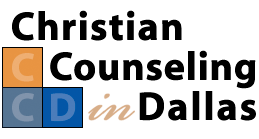A Case for Sermon Notes
Last summer our two year-old clothes washer quit working. The repairman said it would cost several hundred dollars more to fix it than what we paid for it less than two years earlier. We had not purchased the extended warranty because we’d previously had such a good experience with this brand. The manufacturer would not do anything for us except reduce the price of a new one directly from their website, or about the cost we would pay if we purchased it from a local retailer. We decided we didn’t want to buy another of that brand since our experience and recent manufacturer reviews were discouraging.
For several weeks we hauled our clothes to the laundromat. Then came the day for our new washer to be delivered. After it was hooked up we eagerly started a load of laundry, only to watch it drain onto the floor. A plumber told us the new washers drain with a lot more force than older ones did and the small diameter drain pipe at our old house wasn’t big enough. It was back to the laundromat once again while we waited to have the bigger drain plumbed.
As a backdrop to this, I had been studying the book of James. Right away, we’re told to “think of the various tests you encounter as occasions for joy” (James 1:2 CEB). But the day the new washer drained onto the floor I was having trouble thinking of it as an occasion for joy. I tried reminding myself that many people make regular trips to a laundromat because they cannot afford a washer and dryer or live in apartments that are too small for them. I acknowledged we were fortunate to be able to purchase another washer. Neither reminder assuaged my frustration, however.
I studied the book of James that evening and I journaled, thinking about the change that must happen for me to “count it all joy” in this particular test. Then it occurred to me to look at my sermon notes from Pastor Barry Jones’ sermon a few weeks earlier on Psalm 63. There I was reminded of “the opportunity in the wilderness.” I read Barry’s main points and asked myself, “where are my longings (Psalm 63:1)?” I acknowledged to God that my desire for my problem to be solved was stronger than my longing for God Himself. I asked him to change my heart. Barry’s other questions were, “How is my memory (Ps.63:2, 6)? How’s your worship (vv.3-5)? and Where is your trust (vv.7-11)?” When we’re in a spiritual desert it’s hard to remember God’s faithfulness and provision, but we need to remember. During these times we must reorient ourselves to worship, giving God our attention, affection, and allegiance, Barry said. Each point was instructive, a challenge I needed. I found myself glad for my habit of taking notes during sermons.
It’s a habit I began in adolescence. Back then I wrote some notes in a journal, but mostly I wrote in my Bible. It was not all from a good place in my heart. Part of me wanted to keep track of what was said so I could learn from it. Another part of me bought into the idea that it looked good to have a marked up Bible or to be taking notes during a sermon. Nevertheless, it became a habit. God makes use of things we do even when our motivations are wrong. I was glad to have Barry’s notes that day. They reminded me that I really could count it all joy. God was using my relatively small washer problem to bring me to deeper maturity.
